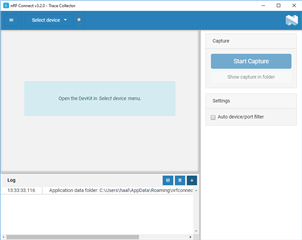Hi,
I've recently switched some prototype code from using MQTT to a custom UDP-based protocol. What I noticed is that if I have the unit sleep for longer periods of time, when it wakes up, the UDP socket behaves oddly. Generally the behavior is that the send() call will succeed (though no packet is received on the server), and then poll(POLLIN) (to wait for an ack packet from the server) will return POLLHUP, and subsequent send() calls return ENOTSOCK or ELOOP. Closing and re-creating the UDP socket appears to resolve this issue.
Our 9160 units are running on Verizon with a PSM cycle set to 190 minutes. The odd behavior happens if I sleep for 90 minutes between transmission cycles. If I sleep for say 15 minutes, the UDP socket works fine for multiple cycles.
I'd assume this behavior is specific to the hardware-offloaded sockets of the 9160, but would love some confirmation of the expected behavior/usage of sockets when in PSM sleep cycles.
Thanks,
Eric



